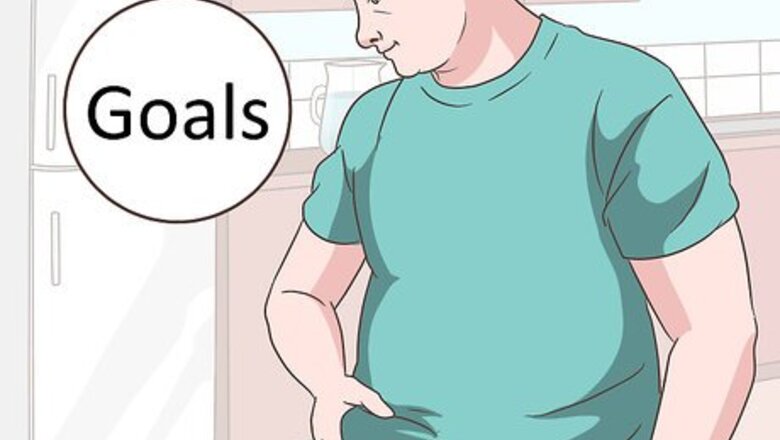
views
Adopting Healthy Habits
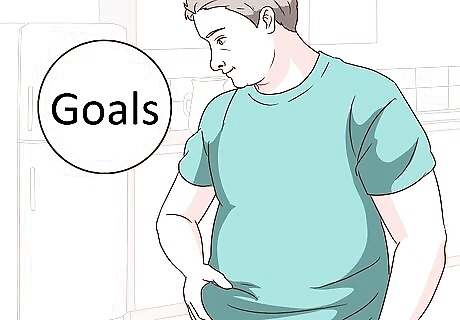
Set small goals. Once you decide to be healthier as you age, you may need to set goals to change your lifestyle. You should start with small, manageable goals instead of trying to change your entire life all at once. Work on lifestyle changes first before making firm goals like losing a set number of pounds. For example, you may start with replacing unhealthy breakfast foods like muffins or donuts with healthy cereal, oatmeal, or the occasional egg dish. Instead of cutting out all unhealthy foods, cut out one item each week. Make small changes to increase physical activity. Take the stairs when you can, park farther back in the parking lot, and go for a short walk after dinner.
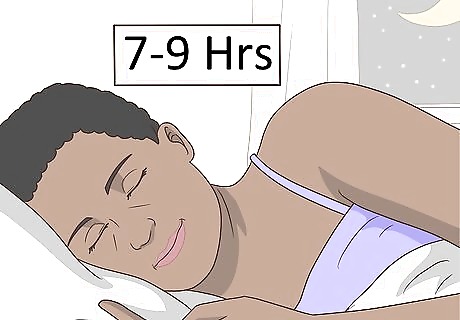
Get enough sleep. Many people have poor sleeping habits, which makes getting adequate sleep as you age more difficult. Try to form good sleeping habits so you can avoid insomnia, lethargy, and disrupted sleep. Aim for seven to nine hours of sleep each night. If you can't get it all at night, take a nap during the day, too. Try to cut off the television and computer one hour before bed. Use low-wattage bulbs when you can. This helps your body produce more melatonin. Reduce all disturbances, such as noise, light, and heat. Go to sleep earlier and try to develop a bedtime ritual. Get into a routine by going to sleep and waking up at the same time each day.
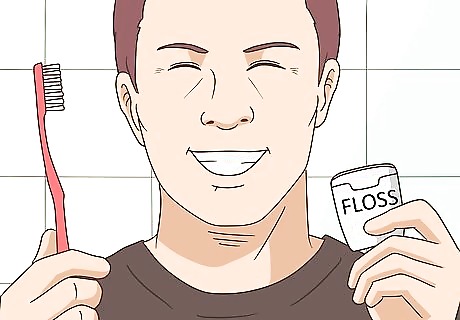
Take care of your teeth. Taking care of your teeth is just as important as taking care of your body. Make sure to brush your teeth and floss twice each day. Go see your dentist at least once each year for an oral checkup.
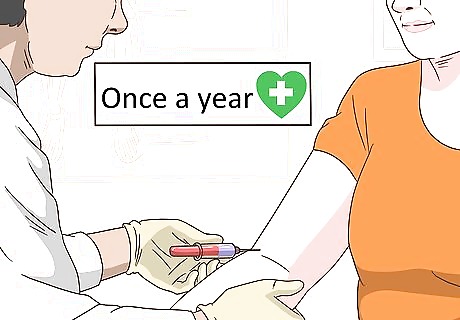
Get tested for cancer and other illnesses. Your risk of getting chronic illnesses and cancer increases after 50. To help catch any problems early, you should have screening tests at least once each year. When you go in for your yearly physical, talk to your doctor about which tests you may need, including mammograms and colonoscopies. Different cancers and illnesses have different risk factors, such as family history. Be honest with your doctor about your family medical history because this can help determine which screening tests you need.
Eating the Right Foods
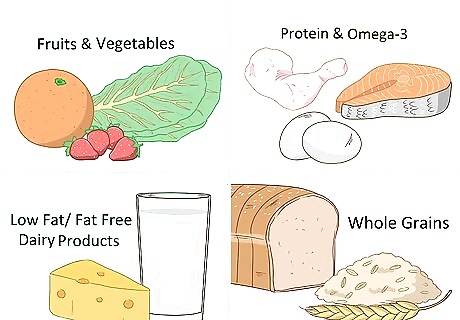
Improve your diet. Diet can significantly affect your health as you get older. A poor diet can lead to diabetes, high blood pressure, and heart disease, while a healthy diet can help lower your risk of chronic illnesses. Your diet should be varied, full of fresh ingredients, and limited in processed, prepackaged foods. Increase your intake of vegetables. Dark leafy greens, like spinach, collards, kale, and Swiss chard, are filled with vital vitamins and minerals. Carrots, green peas, broccoli, tomatoes, and peppers are other good vegetables. Also include beans, like black, kidney, or navy beans. Eat fruit, like berries, citrus, and melons. Lean meat, poultry, fish, and eggs are great ways to increase protein and omega-3 fatty acids. Make sure to get low-fat cuts of meat and remove the skin from poultry. Dairy products provide calcium and other nutrients. Try low-fat milk, yogurt, and cheese. You can also try Greek yogurt, goat cheese, and kefir. Whole grains are healthy carbohydrates that are needed for a well-rounded diet. Try quinoa, oatmeal, barley, millet, amaranth, or whole grain breads.
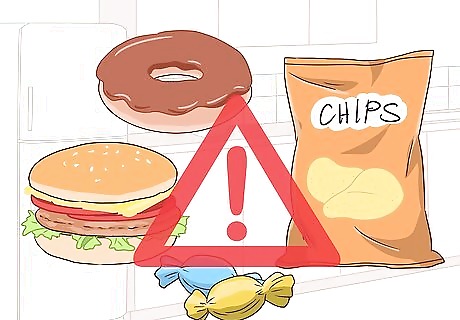
Limit high calorie and high fat foods. To help control your weight, try to cut out as many high calorie and high fat foods you can. One easy way to do this is to avoid prepackaged foods, like bakery items, candy, salty snacks, and meals. Limit high fat dairy products like ice cream, full fat cheese, and butter, along with high fat meats, like fried cuts of meat, ground beef with high percentages of fat, and bacon.
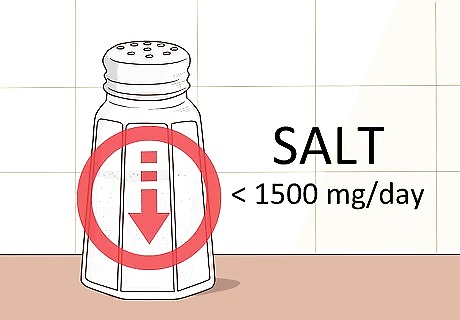
Cut down on salt. Blood pressure is a common problem for people as they age. Salt contributes to high blood pressure, so you should significantly limit how much salt you eat. Try to eat less than 1500 mg of sodium each day. You can try replacing salt with herbs, like oregano, basic, thyme, and rosemary, which have many health benefits. You can also try eating more spices. One way to cut out sodium is to stop eating processed, prepackaged food. This is where most people get their daily sodium. When eating out, ask your waiter about low-sodium alternatives and menu options. High blood pressure can lead to other complications, like stroke, heart attack, heart failure, and kidney disease.
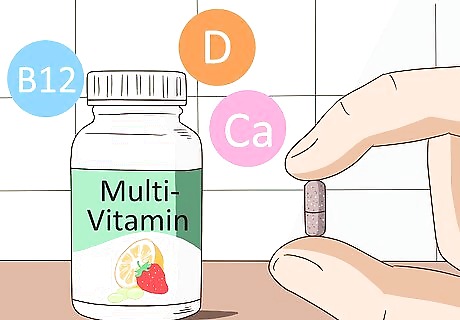
Take vitamin supplements. Getting enough of the right vitamins and minerals is important as you age. You can talk to your doctor about specific supplements you may need, or you can take a multivitamin. There are many vitamins designed for the specific needs of older men and women. Vitamin B12 is important for healthy aging. It helps with blood cells and your nervous system. B12 is found in fish and meat, but a supplement can also help increase your intake. Vitamin D, fish oil, and calcium are also vital to staying healthy after 50. Make sure that if you take a multivitamin that it doesn’t have added iron in it, especially if you are a woman. Too much iron can lead to liver and heart damage.
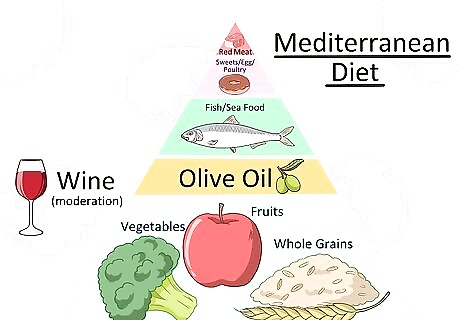
Eat a Mediterranean diet. This type of diet can be a healthy way to eat as you age. They have been found to protect against cancer, heart disease, and other major diseases. On this diet, you eat a lot of healthy foods, cut out certain unhealthy foods, and don’t restrict calories. The Mediterranean diet is easy to follow. The basic idea is that you eat mostly fruits, vegetables, and whole grains, with moderate amounts of olive oil and wine. Consult with a dietitian before starting any new eating plan.
Improving Your Mind and Body
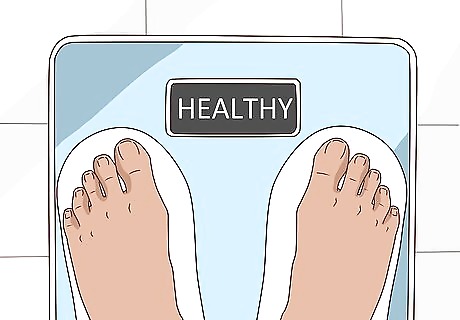
Achieve a healthy weight. Being at an unhealthy weight can lead to many health problems, such as diabetes, heart disease, and high blood pressure. Achieving and maintaining a healthy weight can help you stay healthy the older you get. Getting to your goal weight is a combination of reducing calories and increasing your physical activity. Talk to your doctor about your weight. Everyone’s healthy weight is different and depends on a number of factors. Your doctor can help you determine a healthy, realistic goal for your weight or your BMI.
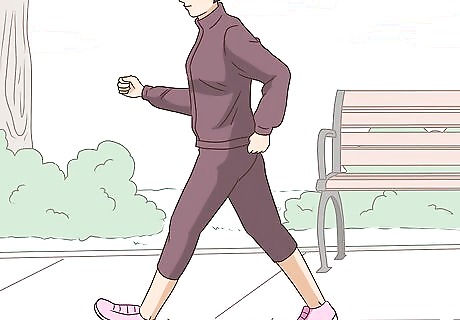
Stay physically active. Being physically active can help prevent many diseases as you age. It also helps improve sleep and mood. You don’t have to exercise vigorously. Physical activity can include walking, doing yard work, or cleaning your house. Try to get 30 minutes of physical activity almost every day. However, if you have not been physically active, start with a little bit more each day. Do an activity you enjoy. This may be walking your dog, walking on nature trails, swimming, cycling, or playing a sport. Try something new. Do a class at the gym, take a dance class, learn how to play tennis, or take up swimming. Ask others to do physical activity with you. This can make it more enjoyable. Talk to your doctor about becoming more active.

Challenge your mind. Using your mind and keeping it active can help keep it healthy as you age. Try doing new things to exercise your brain. You can just try something new with a familiar activity, like cooking. Try a new recipe or cook something you have never tried before. You can also try new things by changing up your routine. Drive different ways through town, use a different hand, or complete an activity a different way. Learn new skills and facts each day. You can try learning something like a sport or activity, or read about history, science, or art. You may even be able to find a local group or book club and meet people who want to learn about the same things as you.
Taking Care of Your Mental Health
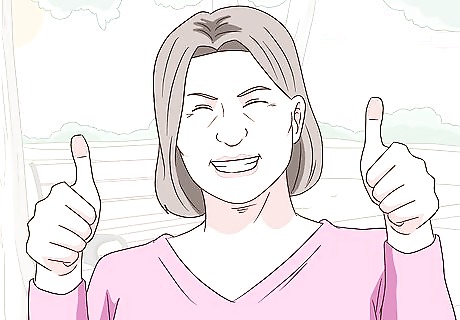
Adopt a positive outlook. Some people have trouble getting older because they focus on what they lose as they age. While the loss of some things are inevitable, many things people fear they will lose is exaggerated. Being over 50 doesn’t automatically mean you will lose your health, energy, vitality, or sexuality. Many people lead fulfilled, active, and healthy lives as they get older, and sometimes they’re in a better place than when they were younger. Try to focus on the positive things in your life instead of the negative. Try not to give up or convince yourself that age means negatives. Growing older can be a great time of your life.
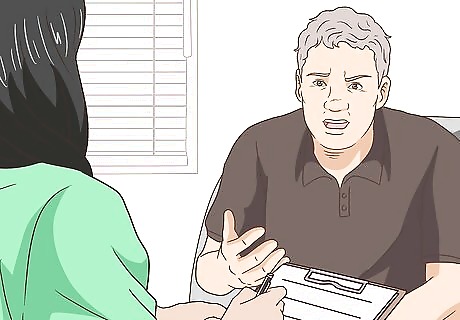
Express your feelings. Some people think they have to stay stoic and keep their feelings hidden as they age. Suppressing your emotions can lead to stress, anger, guilt, resentment, and depression. Find ways to express your feelings as you go through difficult life changes. This may include talking to a trusted friend or mental health counselor. You may also choose to write in a journal or find a support group.

Find ways to enjoy yourself. Getting older doesn’t mean you can’t enjoy life. Being retired and having your children leave home means that you can focus on what you want to do. Nourish yourself and your interests by returning to old hobbies, spending time with those you love, and learning new things. If you gave up an interest when you were younger, return to it. Start playing the piano again, take up sewing again, get back into playing tennis, or return to your model car collection. Try a new hobby. Think of things you have always wanted to do and go for it. Learn to play an instrument, try a new sport, learn a foreign language, or take cooking classes. Spend time with friends and family. Become involved in your community so you can meet new people. Travel to places you have never been. You can even join a travel group if you do not want to go alone.
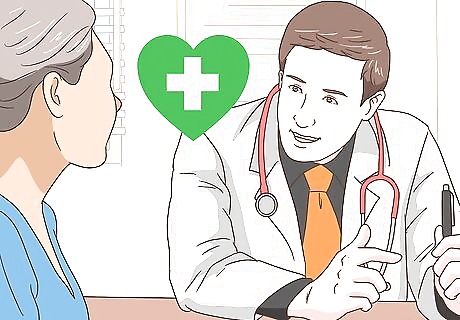
See a doctor if you are having trouble. Depression and anxiety commonly occurs to those over 50. This is due to the many life changes that they may not be able to adjust to. However, you do not have to deal with depression and anxiety alone. If you are feeling down and can’t seem to work through it, go see your doctor or a mental health provider. You may benefit from talk therapy or medication to treat your depression and anxiety.










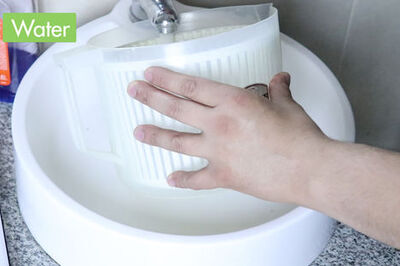
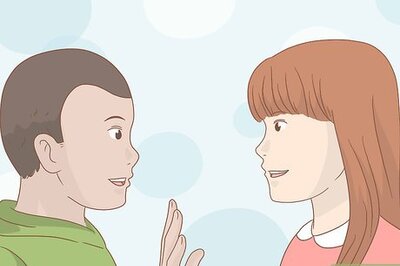


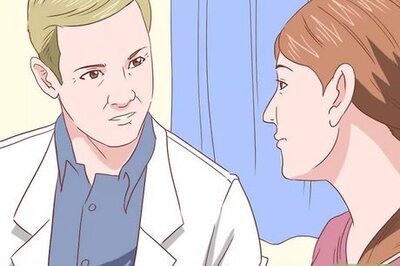


Comments
0 comment